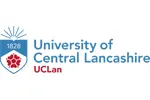Lancaster is one of the best places in the world to study Language and Linguistics, according to the 2025 QS World Rankings. You’ll work with some of the world’s top experts in one of the UK’s largest Linguistics departments as you gain a rich insight into the way language works. We have expertise in the growing prominence of language in areas such politics, security, human cognition, language acquisition and digital communication.
From cutting-edge discoveries in the field, to core theories and principles, this course offers a fascinating exploration of the uniquely human capacity that is language.
Why Lancaster?
- Study with one of the largest Linguistics departments in the UK, with expertise across an impressively wide range of language, linguistics and language education fields
- Benefit from our excellence in teaching and research, with access to 3 specialist laboratories and 11 research centres
- Tailor your degree to your professional and personal interests
- Sharpen your career prospects with advanced skills such as data handling and research methods
- Add an international dimension to your degree – join an international summer school or work on your dissertation from a partner university
Learn from experts
Study in an environment that is intellectually rich, active and supportive. Our MA programme is delivered by world-renowned experts in Lancaster’s School of Social Science. It has been designed to reflect the latest cutting-edge topics and developments in the field, as well as core theories and principles.
You’ll become a member of our thriving Linguistic community. Alongside taught elements of your degree programme, there are numerous opportunities to engage with the subject, from attending our research groups to hearing talks by inspiring international experts. You will have access to our state-of-the-art labs, including a phonetics lab with ultrasound, an EEG lab, an eye-tracking lab and a child-language lab.
While you may have studied a linguistics or language subject before, this isn’t essential, and we also welcome students who have a language or linguistic dimension in their current work or a personal interest in the subject.
A diverse exploration of language
The MA offers a broad range of optional modules, offering the opportunity to tailor your degree and gain knowledge, skills and understanding in the areas that interest you the most. We’ll ensure you are party to the very latest knowledge in the field, and our modules include the most up-to-date topics, theories and methods in language and linguistics.
The degree covers a very broad range of topics, such as:
- Phonetics
- Corpus linguistics
- Pragmatics and sociolinguistics
- Areas where linguistics connects with broader disciplines such as cognitive science and psychology
Lancaster has expertise in real-world areas where we are seeing a greater prominence for language. These include:
- Power and politics
- Language policy and multilingualism
- Literacies and digital communication
- Language learning and teaching
- Security and intelligence
You will draw on your learnings from these and other topics as you choose a subject for your dissertation, delving deeper into an area of particular importance to you. Your dissertation is an opportunity to showcase your knowledge and skills as you investigate your chosen subject under the guidance of one of our academic team, with particular expertise in the subject.









